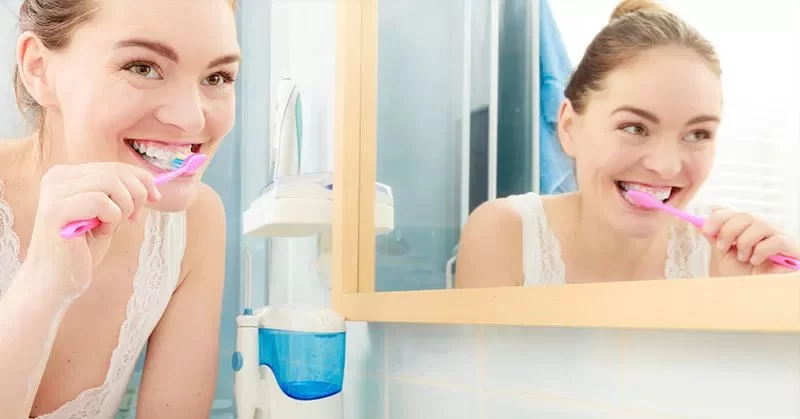
How to Maintain Oral Hygiene at Home for a Healthier Smile
Maintaining oral hygiene at home is an essential aspect of keeping your teeth and gums healthy. While regular visits to the dentist are important, the majority of your oral care routine happens in the comfort of your own home. Proper oral hygiene can prevent a variety of dental issues, including cavities, gum disease, and bad breath. In this article, we will explore the best practices for maintaining good oral hygiene, practical tips for daily care, and some common myths surrounding dental health. By following these steps, you can ensure a bright, healthy smile for years to come.
1. The Importance of Brushing Your Teeth
Brushing your teeth is the foundation of any good oral hygiene routine. Most people know they should brush their teeth twice a day, but are they doing it correctly? Let's dive into the details of brushing for optimal results.
1.1 The Right Toothbrush and Toothpaste
When choosing a toothbrush, opt for one with soft bristles to avoid damaging your gums and enamel. While manual toothbrushes are effective, electric toothbrushes can provide a more thorough clean. Be sure to choose toothpaste that contains fluoride, as it helps to strengthen enamel and protect against cavities. If you have sensitive teeth, there are special toothpaste formulas that can help alleviate discomfort.
1.2 How to Brush Correctly
It’s not just about brushing your teeth—it’s about brushing them correctly. Hold your toothbrush at a 45-degree angle to your gums, using gentle circular motions. Be sure to brush for at least two minutes, covering all surfaces of your teeth. Don’t forget to brush your tongue as well, as it can harbor bacteria that contribute to bad breath. Make sure you replace your toothbrush every three to four months to maintain its effectiveness.
2. The Role of Flossing in Oral Hygiene
While brushing removes plaque and food particles from the surface of your teeth, flossing is essential for cleaning the areas between your teeth that a toothbrush can’t reach. Flossing helps prevent cavities, gum disease, and plaque buildup. However, many people skip this important step. Let’s explore how to floss properly and why it matters.
2.1 Choosing the Right Floss
There are different types of dental floss available, including waxed, unwaxed, and flavored options. Waxed floss tends to slide more easily between tight teeth, while unwaxed floss provides a bit more friction. Some people prefer flavored floss for a fresh taste after cleaning. The type you choose depends on your personal preference, but any flossing method is better than none!
2.2 How to Floss Effectively
To floss correctly, gently slide the floss between your teeth, forming a "C" shape around each tooth. Be sure to move the floss up and down the sides of your teeth, cleaning beneath the gumline. Avoid snapping or forcing the floss, as this can hurt your gums. Flossing should be done at least once a day to maintain optimal oral hygiene.
3. Rinsing with Mouthwash
Mouthwash is an excellent addition to your daily oral care routine. It helps kill bacteria, freshen breath, and can even prevent gum disease. However, not all mouthwashes are created equal, so it's important to choose the right one for your needs.
3.1 Types of Mouthwash
There are two main types of mouthwash: cosmetic and therapeutic. Cosmetic mouthwashes temporarily freshen breath but do not address underlying issues like plaque or gum disease. Therapeutic mouthwashes contain active ingredients that target specific dental problems, such as plaque, gingivitis, or cavities. Look for mouthwash that contains fluoride for added protection.
3.2 When to Use Mouthwash
Using mouthwash after brushing and flossing can help rinse away remaining particles and kill bacteria. It’s best to use mouthwash for 30 seconds to a minute, swishing it around your mouth and between your teeth. However, it’s important to note that mouthwash should not replace brushing or flossing—it’s a supplement to your routine.
4. Diet and Oral Health
What you eat can have a significant impact on your oral hygiene. A balanced diet helps keep your teeth strong and prevents many common dental problems. On the other hand, sugary snacks and drinks can lead to cavities and tooth decay. Let’s take a closer look at how diet plays a role in oral hygiene.
4.1 Foods That Promote Healthy Teeth
Some foods are particularly beneficial for your teeth, such as dairy products, leafy greens, and crunchy fruits and vegetables. Dairy products like milk, cheese, and yogurt are rich in calcium, which strengthens tooth enamel. Foods like apples and carrots can help clean your teeth naturally as you eat them, acting as a natural toothbrush.
4.2 Foods to Avoid
On the flip side, foods high in sugar and acid can be damaging to your teeth. Sugary snacks like candy, soda, and fruit juices can contribute to plaque buildup, which can lead to cavities. Acidic foods like citrus fruits can erode enamel over time. Try to limit your intake of these foods and always rinse your mouth with water afterward.
5. The Importance of Regular Dental Visits
While maintaining good oral hygiene at home is crucial, regular dental check-ups are equally important. Dentists can spot problems early, clean areas that are difficult to reach with home care, and offer professional treatments to improve your oral health.
5.1 How Often Should You Visit the Dentist?
Most dental professionals recommend visiting the dentist every six months for a routine check-up and cleaning. If you have specific oral health concerns, such as gum disease or cavities, you may need to visit more frequently. Regular visits help catch issues before they become more serious problems.
5.2 What to Expect During a Dental Visit
During your visit, your dentist will examine your teeth, gums, and mouth for any signs of problems. They will also perform a professional cleaning to remove plaque and tartar that have built up on your teeth. In some cases, additional treatments, such as fluoride varnishes or sealants, may be recommended to protect your teeth.
By incorporating these habits into your daily routine, you can maintain optimal oral hygiene at home and keep your smile healthy. At Family Dentistry Online, we offer expert dental care tips and product recommendations to help you achieve the best oral health possible.







 Arise Dental - Your Local Peoria Dentist4.0 (205 review)
Arise Dental - Your Local Peoria Dentist4.0 (205 review) Light Dental Studios of University Place4.0 (279 review)
Light Dental Studios of University Place4.0 (279 review) Dentists of South Pasadena4.0 (124 review)
Dentists of South Pasadena4.0 (124 review) Aurora Dental Care4.0 (153 review)
Aurora Dental Care4.0 (153 review) ClearChoice Dental Implant Center4.0 (383 review)
ClearChoice Dental Implant Center4.0 (383 review) Kansas City Dentures and Implants5.0 (15 review)
Kansas City Dentures and Implants5.0 (15 review) The Importance of Oral Health Education During Pregnancy for a Healthy Pregnancy
The Importance of Oral Health Education During Pregnancy for a Healthy Pregnancy Best Tips for Brushing Your Teeth Properly for Healthy Gums: Essential Techniques for Oral Health
Best Tips for Brushing Your Teeth Properly for Healthy Gums: Essential Techniques for Oral Health Why Skipping Dental Checkups Can Lead to Bigger Oral Health Problems
Why Skipping Dental Checkups Can Lead to Bigger Oral Health Problems Advantages of Porcelain Dental Restorations
Advantages of Porcelain Dental Restorations How Can Diabetes Cause Tooth and Gum Problems? Preventing and Managing Oral Health Issues
How Can Diabetes Cause Tooth and Gum Problems? Preventing and Managing Oral Health Issues Healthy Habits for Promoting Good Oral Health and Hygiene: Tips for a Healthy Smile
Healthy Habits for Promoting Good Oral Health and Hygiene: Tips for a Healthy Smile